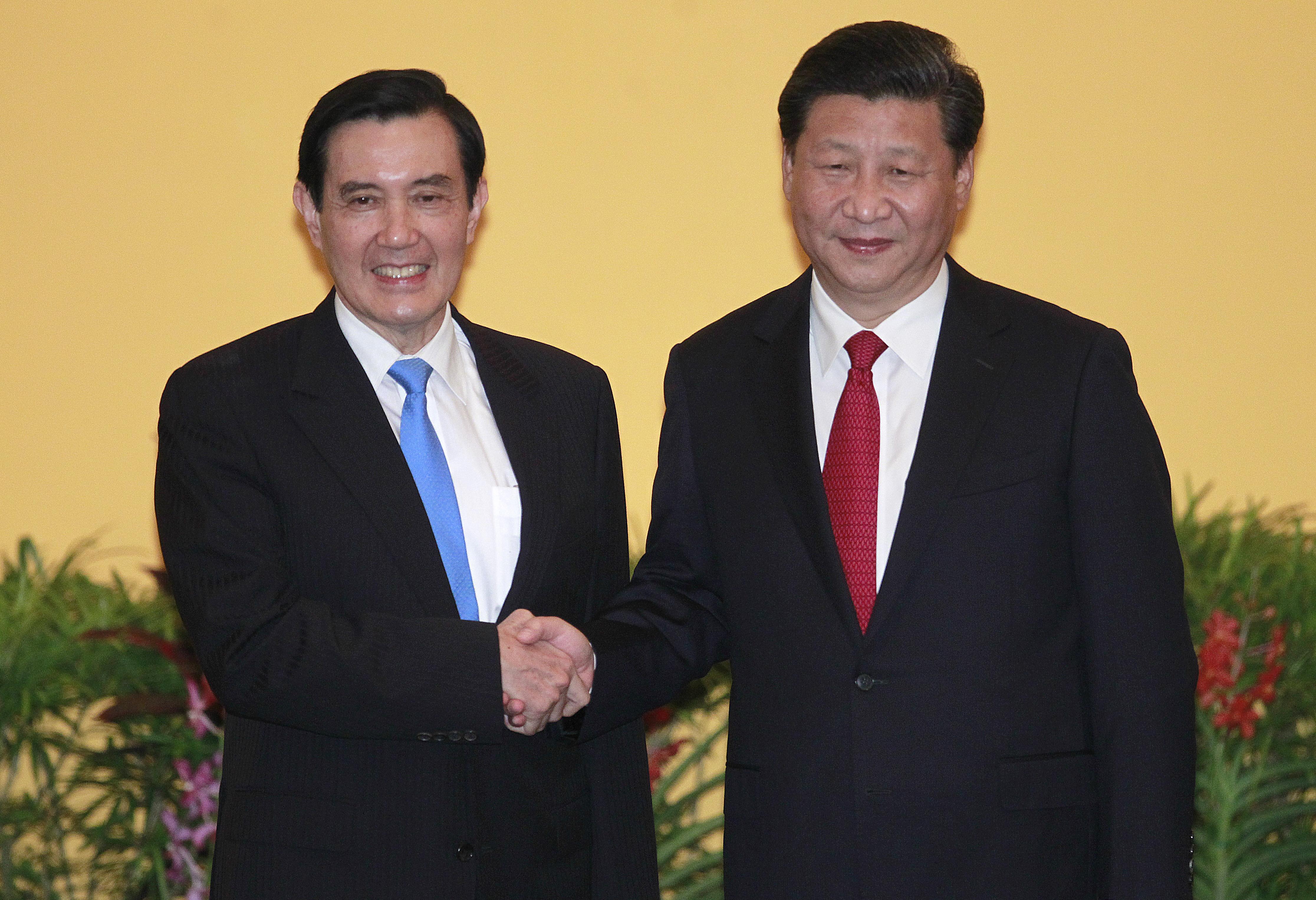Chinese President, Xi Jinping, addressed to his Taiwanese colleague, Ma Ying-jeou, stressing that the two sides are “one family”. The Taiwanese leader has responded by stating that “both parties must respect the values and the way of life of the other”.
The meeting between Chinese President Xi Jinping and the Taiwanese Ma Ying-jeou is already in the history, because it comes after sixty-six years of rupture of diplomatic relations between the leader of the People’s Republic of China and the one of the Republic of China, the official name of Taiwan since – in 1949 – the leaders of the nationalist Party (“Kuomintang”) Chang Kai-shek fled to the island after being defeated by the communists led by Mao Zedong.
The two leaders shook hands before beginning the interview. And, as previously announced, they used formal language, calling each other simply “sir”, without spelling the word “president”, to demonstrate reciprocal good intentions. Since then the two countries do not recognize the respective existence and do not have formal diplomatic relations, although since at least three decades there is a constant dialogue.
Xi Jinping addressed to his colleague Taiwanese Ma Ying-jeou, emphasizing the peoples “of the two sides of the Taiwan Strait are one family. No force can separate us, we are one family,” said Xi after the handshake. “The blood – he added – is thicker than water.” Then again: “We are here to prevent the recurrence of the tragedies of the past.” The Taiwanese leader Ma responded by stating that “both parties must respect the values and the way of life of others.”
But what relationships exist between China and Taiwan? Beijing still considers Taiwan as a renegade province, but does not invade it; Taiwan, for its part, does not challenge the Chinese giant with a formal declaration of independence. The KMT, in power continuously since 2008 after two consecutive wins in the presidential election, has relaxed policy and economic cooperation with China: resumed direct flights between many Chinese cities and the Taiwanese capital Taipei; there was a boom in bilateral trade which reached a record $ 200 billion in 2014; have been allowed visits by Chinese tourists in Taiwan. Many Taiwanese businessmen and young graduates have moved in the People’s Republic, driven by the opportunities created by the high growth rate. In short, in the name of the mutual economic interests it seems to be all right.
But in Taiwan there are those who would want a tougher line towards Beijing: the Democratic Progressive Party, the main opposition force, does not recognize the “1992 Consensus” (the document in which Beijing and Taipei have recognized the existence of “One China” comprising the mainland and Taiwan, and the definition of which is subject to different interpretation and definition by each State) and supports a formal independence of Taiwan and its official recognition at the international level.
In January, Taiwan will go to the polls and the DPP is given, for the first time since there are free elections in Taiwan, a clear advantage on the ruling party, with the risk of a deterioration in relations with Beijing. President Ma hopes then to give support to his party’s candidate Eric Chu, demonstrating to Taiwanese politics KMT allows Taiwan to dialogue on equal terms with China.
